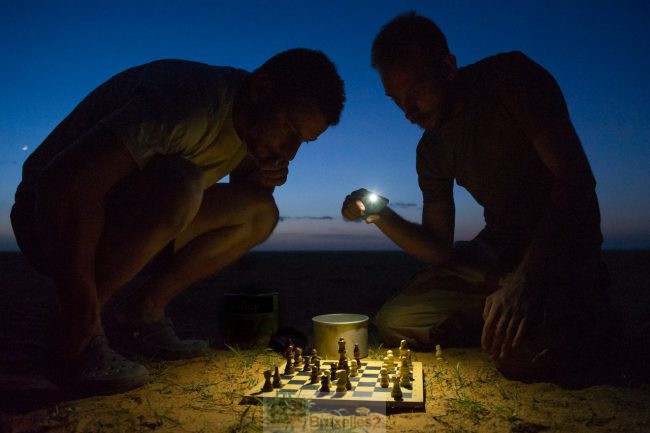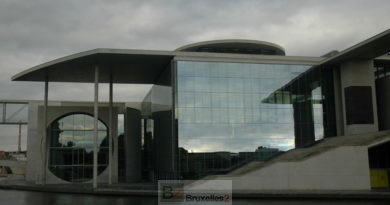European defence: what we can do…together

(B2) Relaunch, revitalize, re-energize, strengthen... All the verbs in 'Re' are currently required, to give content to Defense Europe... We bring out the old papers stored in the archives for years 2000. What can be done? Spirits are racing. And it goes in all directions: the European army, some see it for tomorrow (Sobutka), others in 50 or 100 years (Mogherini), the European HQ some see it as military (Franco-German), civil-military (Mogherini), quickly (Juncker) or not immediately (Franco-German), etc. We dress new projects that have already been launched (tanker aircraft, defense research, etc.).
Beyond the big ideas, what to do, how to do it, and what concrete projects have a chance of succeeding? I reviewed the various projects, ideas, possibilities and tried to classify them, on a scale of 0 to 5, according to the degree of difficulty and the number of problems encountered (legal basis, financial means, technical obstacles, need for 'a proposal). Beforehand, it will be necessary to carry out a little work of introspection. Because the difficulty is not technical... but on the will.
1° Reread the Treaty with dynamism. We are swimming in a paradox. The European security and defense policy (CSDP) has a maximum of possibilities for action, provided for by the Treaty. Almost none were used. Some are neglected to such an extent that even certain diplomats or eminent specialists have forgotten them... Quite often, the blame is placed on the European institutions, the High Representative. Sometimes that might have been the case. But very often, and even almost always, the Member States have the possibility of taking the initiative or, at the very least, of formally requesting the application of a specific provision. Permanent structured cooperation or enhanced cooperation therefore only requires a letter, a will. It is only very recently thanks to the French discovery of setting in motion the mutual assistance clause, of article 42-7, that this provision has come to light.
2° Stop hiding a finger behind the British veto. The United Kingdom has often taken on the role of the "bad guy" who blocks everything. Brexit and the departure of the United Kingdom should normally facilitate European action in the field of defence. In fact, it is above all the tree that hid the forest that is cut down... Because the reluctance is very shared. Each Member State has its corpse in the closet. Thus a reform of the financing of operations has been attempted. But the Germans and Dutch, slightly stingy on the edges, did not want to hear about additional joint funding. The Nordics, very enthusiastic, in theory, often multiplied the questions (diplomatic word to say no) when it came to going into practice. Ireland, even Austria, neutral countries did not want to see too much military action or cooperation that was too structured and too conspicuous. The Greeks, Cypriots, Portuguese, and even Italians — even if they are volunteers and ready to intervene — no longer have a kopek for joint operations and are focused on the migration crisis... The Belgians who were once the ' top of the class' are "rinsed" (Belgium is at the bottom of all categories in the NATO classification of defense budgets. And the government of Charles Michel does not really have the European faith of its predecessors). As for the Slovaks, Bulgarians, Romanians, Hungarians (and the Poles now), they don't have the money, the strength and the will. They are often absent subscribers to European action.
3° Seek to innovate. The sticking points are known. No need to start again from the assault of an impregnable citadel. It is better to look for side roads, the possibilities of arriving at the hoped-for result (the European HQ, the possibility of rapid reaction...) even if it means dropping the (unused) concepts, putting aside the projects well under all reports but quite impractical in practice. You have to act stoomeling (as the Belgians would say), be pragmatic (the French and Germans would say)...
What projects to carry out?
1° Establish a European Security Council / debate on threats to the European Council. Normally at least once a year, on the basis of a report from the High Representative, the Heads of State and Government must discuss security issues. This provision has been totally abandoned. One can even say that there is a "deficiency" in the legal sense of the term. This is not about having a debate of one or two hours, quickly, at 28 or having a debate on a single subject (Ukraine for example) but about having a substantive debate, for 1 or 2 days, on the various existing or possible threats, based on preparatory work by the High Representative of the Union. This in-depth debate, held coldly, is important because it can make it possible to anticipate and initiate certain actions. In terms of defence, there is no point in having good projects, it is the political impetus that counts, and at the highest level. It takes no effort. There is no blockage. It is enough that Donald Tusk decides tomorrow to convene a European Council especially on this subject... And the European Security Council, advocated by certain leaders (like François Hollande) sees the light of day! Difficulty = zero.
2° The capacity building of African and other countries, the supply of equipment. The European Commission and the High Representative put on the table in July, in relatively open discretion, a project (called CBSD) to release European funding in order to train and equip the (military) security structures of weakened countries in the grip of the terrorism, the migration crisis, destabilization. Cost of the program: 100 million euros over three years. Cost for States = zero. The financing of this program will be ensured by budgetary redeployments within the heading "external" of the European budget. The question is above all political: do we want or do we not want to achieve this project? At the level of the Commission, the project has already taken more than two years to lead to a proposal (under some legal pretexts). This project should not take another two years to reach the Council or Parliament. It's all about political momentum today. Difficulty = 1 or 2.
3° Defense and security attachés in risky EU embassies. The project started in some of the embassies of the European Union. It would be a question of systematizing it, with at least one attaché in all the delegations concerned (more than a quarter of the countries where the EU has one are affected by crises), even several in the delegations in high intensity crisis . It will be a question of facilitating the feedback of information from the field, finally of giving the European Union a real capacity for analysis, but above all of being able to weave, as equals, with the various countries in crisis, the map of their needs and European possibilities. The image effect is also not negligible. It takes some human resources (and funding them), but it's not huge. Difficulty = 1.
4° Resuscitate the battlegroups: really have a rapid reaction force. 1500 battlegroups or battlegroups never managed to be deployed. It's not for lack of a crisis or for lack of trying. There have been several attempts in recent years (I have counted five in 8 years!) but it has never been successful. The reason... ? there is always a good technical, financial, geopolitical, military or political reason for not using them. And useless to accuse the British (never agree), the blockages were sometimes German, sometimes French, sometimes Nordic... Everyone found themselves in the position of 'volunteer' and 'blocker'. It is necessary – no offense to some – to review the device. Depending on whether you keep this concept or adjust it, the difficulty is different. Difficulty = 2 or 4
5° The permanent military headquarters. This is a nagging problem that comes up regularly. The European Union does not have a command headquarters (HQ) for its military operations or missions. It is obliged to 'tinker' by having recourse either to NATO HQ (a solution abandoned today because it is unsuitable), or to national headquarters. Result: a waste of time at each operation, because it is necessary to set up a HQ, and above all a loss of memory, of experience. The United Kingdom had said 'No' to the latest attempts promulgated by Catherine Ashton. The question comes back on the table, London leaving. Depending on the ambition set for this military HQ, the difficulty can vary. In terms of personnel, the gap does not seem insurmountable. Calculations have already been made internally – as an EU military expert told me –: with about 20 additional people"which would be added approximately “80 people from the EU military staff” — whose tasks would be somewhat reconfigured (less theory, more practice — “we have a HQ da hundred people, which is already enough (if we have the right people). This quantum necessary for a permanent HQ, in low water, can then be reinforced in the event of an operation. The obstacle is therefore essentially political. But if the French, Germans (or even Italians) want it, they can draw on the capacities of their command staffs — Mont Valérien, Potsdam, Rome — the necessary manpower, “relocate” them to Brussels by making them available of the High Representative, without changing anything in the politico-military structure. Which would already be a useful first step. Difficulty = 1 or 3.
6° Ensure joint financing of operations. Today, only a minor part of military operations is jointly funded. The burden of financing operations rests largely on the participating States. It's a bit like the principle of double jeopardy: the country that commits risks its men, its political reputation and must pay almost everything. The share financed jointly is a minority (between 10 and 15%, 20% maximum). For the anti-piracy operation, during the peak period of activity (when piracy was at its highest), it was less than 10% of the total cost! The reform of the Athena mechanism has always failed. The initial political impetus for reform quickly got bogged down in a bureaucratic mess that cast doubt on yet another attempt at reform. Difficulty: 4
NB: Several ideas had been presented, they did not really lead: read: Financing of the Sangaris operation. Inflation or “real” idea
- Read also: Athena mechanism overhaul fails (2011)
7° Launch the Launch Fund. This is a totally forgotten provision of the Treaty. Provided for in article 41-3, it has never been implemented. It allows, thanks to contributions from each Member State (in proportion to the GDP), the " emergency funding for initiatives within the framework of the common foreign and security policy ". That is to say, to finance the start-up of an operation, in particular. Which is often the most difficult. We now need a proposal from the High Representative. No risk of veto. The decision is made by qualified majority. The real difficulty is finding the funding. But we are not talking about billions of euros. A fund endowed with 50 to 100 million euros per year would already be a good start (1). This would make it possible in particular to finance the first commitments in operations. Difficulty = 2.
8° The avant-garde groups. The possibility of entrusting missions to a group of nations (article 44 of the treaty) was debated for a time but remained at the conceptual stage. It is, however, an interesting possibility to combine the commitment of a few countries, in the vanguard, with the European interest. Difficulty = 2
9° Have a fund for Research. It's a real European problem, apart from the French, the British and the Germans, the other countries are stowaways of defense research. Either they buy from America (and in fact contribute to American research programs), or they buy from their neighbours. A project has been launched by the Commission and still needs to be approved to launch a European research program and set up a "defence research" budget line in the European budget. The budget remains modest (90 million euros over three years) because it is above all a question of testing the devices. But it is useful to go through this preparatory stage, a prelude to a more imposing research programme, because there are a number of problems to be solved, in particular the dissemination of results, or the management of projects (is it the Commission as usual or more intergovernmental governance). The subject is really complex. We will then have to move on... and incorporate this program into the financial perspectives 2021-2027. The issue is important. And it will take real political pressure to get there. It will also be necessary to find a way to federate the "small" research and defense budgets of each country, which are too weak to make a difference and deserve to be federated. Difficulty: 3.
- Read also: Don't we need a European FMS? (March 2013)
10° Permanent structured cooperation as no enhanced cooperation has been put in place or even envisaged and prepared. The difficulty therefore seems intense. But everything is ready on the legal level. All it takes is one or two states to get involved. And it will be difficult to stop the machine. As this cooperation can be triggered by a qualified majority (with the benevolence of the High Representative), it is enough for the French, Germans and Italians to join the political gesture to their political word. If the Benelux countries and the Mediterranean countries, or even one or two eastern countries, join, the qualified majority is acquired. Difficulty = 3 or 4
- Read also: A hard core for the defense. Who will dare to advance?
- And our file on: Permanent Structured Cooperation
11°. The European army: a decoy. It's very complicated. This means having a political power capable of committing these troops. Otherwise it looks like a decoy... But that doesn't mean that common unit projects, sharing certain capacities, or even a large part of the capacities is not possible. However, this will not have any interest and added value in a bilateral or trilateral framework when there are staff that are both complementary and not numerous enough and, in addition, a certain geographical, political or even linguistic proximity (for example between the Benelux countries, or between Czechs-Slovaks, or between Croats-Slovenes, etc.) thus allowing these capacities to reach a certain value. Difficulty = 5 or out of class
(Nicolas Gros-Verheyde)
(1) i.e. approximately 1,5/3 million euros for Belgium, 8/16 million euros for France, 11/21 million euros for Germany.
Go further :
Read also:
- The 10 myths that plague European defense
- The twelve weak points of the CSDP to be resolved urgently (June 2015)
- The Nobel in hand. And now to work! No more ostrich politics
Our file No. 33. The Common Security and Defense Policy (CSDP) in 2016
And our exclusive analyses:
- Paris and Berlin are revitalizing European defence. Permanent structured cooperation triggered?
- The High Representative's ten proposals on defence. A necessary political impetus
- Security and defense according to Jean-Claude Juncker
And all our articles on the future of CSDP



European defense can only be quite limited. Why ?
1) the language barrier. How to communicate in one language?
2) neither the same armaments, nor the same equipment, nor the same vehicles, nor the same maintenance, nor the same logistics, therefore “in the field” impossibility for an Army to help another if necessary
3) what political authority could give the order to take action without consulting the other Heads of State?
4) Europe is not a Nation but a set of Nations not acting and reacting in the same way
5) All attempts since the EDC (European Defense Community) of the 50s have failed and for good reason!
So let's forget a common European defense which is a “decoy” which will never be organized like the “Warsaw Pact”.
Very good this analysis of “what and how” we could act together (at 27 or less).
But as long as the “why” meets so many different versions among EU members, there is little chance that this debate will have more success than we have seen since 2004.
And if that did not work with a much more harmonious Union, the disharmonious situation of today does not lend itself to it any more.